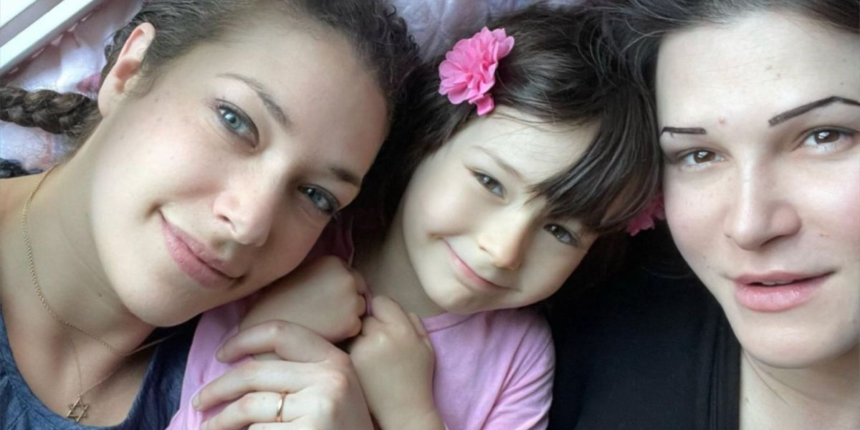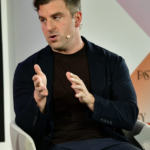Miki Habryn can finally sleep at night. For many months, in the run-up to and after President Trump had won the election, that wasn’t the case.
Up until June this year Habryn was living what many would call the American dream. She had a job at ChatGPT-maker OpenAI, surrounded by some of the brightest minds in artificial intelligence. Her pay was comfortably in the six-figures, and she owned a house in San Francisco, the first city she had ever lived in which felt like home.
Her six-year old daughter, Steffi, was enjoying school and her wife, Eden, was thriving in her career as an artist.
When President Trump returned to the Oval Office, the family made the decision to leave San Francisco—and Habryn’s dream job—and move to Stockholm, Sweden. There they hope to stay indefinitely.
Habryn said she made the choice to leave the the U.S., where she had lived since 2007, one night in March. She said: “My wife was traveling on the East Coast and I was home with Steffi. And something about that particular night, I was awake worrying about things which was not uncommon, and I just got to the point of: It’s time to go, I can’t just stay here and do nothing, but doing anything comes with such terrible risks for me because of my status.”
“If I came to the attention of, or got arrested by the federal authorities, the outcome of that could be tragic. It turns out that my wife, on the same day, reached the same conclusion.”
Habryn explains the “status” she refers to: “During the campaign it was immigrants and transgender people that was occupying the airways and since I’m both, they’ve got me coming and going effectively.”
Habryn is no stranger to working in America’s tech elite: She moved to the U.S. originally to work for Google in Mountain View where she stayed for the next 12 years. Her experience at OpenAI, where she worked from May 2024 to July 2025, is a familiar story to many in Big Tech: An intense atmosphere, “wonderful” people and riveting work.
“It’s challenging,” Habryn said. “I think it’s exciting but I was lucky enough to have a lot of security and confidence in my own abilities—I think without that it would have been very, very hard.”
The prospect of losing her dream role in the research department of one of the world’s most-talked about companies was a key issue which held Habryn back from making the move earlier. While her team was supportive of the decision, ultimately the legalities of Habryn’s work meant it couldn’t move with her.
“It was really hard,” she said. “That was probably the reason it took me as long as it did to make the decision, because honestly I had this period of grief stepping away from this. I’ve been working in tech for a long time … and really the only thing I want to be working on is AI.
“It was hard and I didn’t love making that decision but, ultimately, it was just a question of priority.”
Habryn is confident she will find interesting work when she needs to, and the family are settling into their newly purchased home in Stockholm—the family doubt they will ever return to the U.S. That comes with “guilt”, Habryn says: “I buy the narrative that you should fight for the things that you believe in and that there is value to staying and fighting for that. If it were not for Steffi, I think we would have.”
Ultimately her six-year-old daughter is their focus: “We set aside a lot of things that we love to do [because] we want Steffi to have a routine, a stable home, a stable school and all those things. The hardest thing about this whole move has been worrying about the impact on her and so the priority was that we don’t want to do this again, we’re going to move once, and we want to put down roots and spend the next 15/20 years there.”









